16 Books Published by Verso Books on AALBC — Book Cover Collage
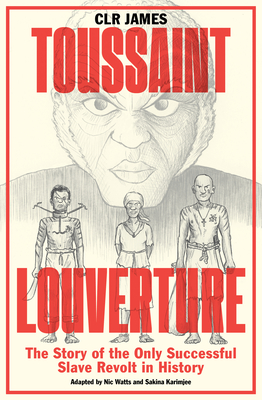 Toussaint Louverture: The Story of the Only Successful Slave Revolt in History
Toussaint Louverture: The Story of the Only Successful Slave Revolt in History
by C.L.R. JamesVerso Books (Oct 10, 2023)
Read Detailed Book Description
A stirring graphic novel of the Haitian Revolution
The end of slavery started in what was then San Domingo. In 1791, the enslaved people of the most prized French sugar plantation colony revolted against their masters. For over twelve years, against a backdrop of the French Revolution, they fought an epic black liberation struggle for control of the island. Theirs was the first and only successful slave revolution. It was the creation of Haiti as a nation, the first independent black republic outside of Africa, and an international inspiration to the persecuted and enslaved. This is the impassioned and beautifully drawn story of the Haitian Revolution and its incredible leader: Toussaint Louverture.
The text of this graphic novel is a play by C. L. R. James that opened in London in 1936 with Paul Robeson in the title role. For the first time, black actors appeared on the British stage in a work by a black playwright. The script had been lost for almost seventy years when a draft copy was discovered among James’s archives. Now this extraordinary drama has been reimagined by artists Nic Watts and Sakina Karimjee.
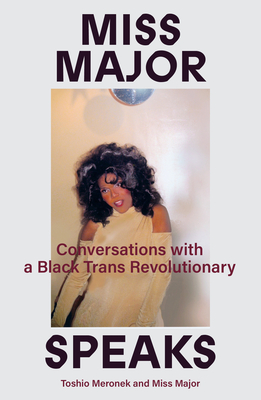 Miss Major Speaks: Conversations with a Black Trans Revolutionary
Miss Major Speaks: Conversations with a Black Trans Revolutionary
by Miss Major and Toshio MeronekVerso Books (May 16, 2023)
Read Detailed Book Description
The future of Black, queer, and trans liberation explored by a legendary transgender elder and activist
Miss Major Griffin-Gracy is a veteran of the infamous Stonewall Riots, a former sex worker, and a transgender elder and activist who has survived Bellevue psychiatric hospital, Attica Prison, the HIV/AIDS crisis and a world that white supremacy has built. She has shared tips with other sex workers in the nascent drag ball scene of the late 1960s, and helped found one of America’s first needle exchange clinics from the back of her van.
Miss Major Speaks is both document of her brilliant life-told with intimacy, warmth and an undeniable levity-and a roadmap for the challenges black, brown, queer and trans youth will face on the path to liberation today.
Her incredible story of a life lived and a world survived becomes a conduit for larger questions about the riddle of collective liberation. For a younger generation, she warns about the traps of ’representation, ’ the politics of ’self-care, ’ and the frequent dead-ends of non-profit organizing; for all of us, she is a strike against those who would erase these histories of struggle.
Miss Major offers something that cannot be found elsewhere: an affirmation that our vision for freedom can and must be more expansive than those on offer by mainstream institutions.
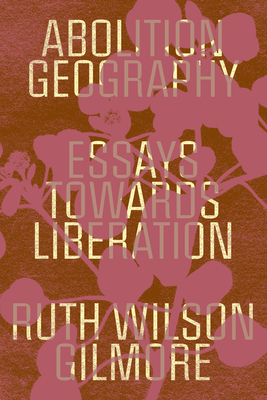 Abolition Geography: Essays Towards Liberation
Abolition Geography: Essays Towards Liberation
by Ruth Wilson GilmoreVerso Books (Mar 21, 2023)
Read Detailed Book Description
The first collection of writings from one of the foremost contemporary critical thinkers on racism, geography and incarceration
Gathering together Ruth Wilson Gilmore’s work from over three decades, Abolition Geography presents her singular contribution to the politics of abolition as theorist, researcher, and organizer, offering scholars and activists ways of seeing and doing to help navigate our turbulent present.
Abolition Geography moves us away from explanations of mass incarceration and racist violence focused on uninterrupted histories of prejudice or the dull compulsion of neoliberal economics. Instead, Gilmore offers a geographical grasp of how contemporary racial capitalism operates through an "anti-state state" that answers crises with the organized abandonment of people and environments deemed surplus to requirement. Gilmore escapes one-dimensional conceptions of what liberation demands, who demands liberation, or what indeed is to be abolished. Drawing on the lessons of grassroots organizing and internationalist imaginaries, Abolition Geography undoes the identification of abolition with mere decarceration, and reminds us that freedom is not a mere principle but a place.
Edited with an introduction by Brenna Bhandar and Alberto Toscano.
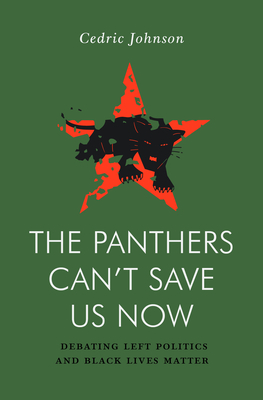 The Panthers Can’t Save Us Now: Debating Left Politics and Black Lives Matter
The Panthers Can’t Save Us Now: Debating Left Politics and Black Lives Matter
by Cedric JohnsonVerso Books (Mar 01, 2022)
Read Detailed Book Description
Ending the horrors of police violence requires addressing economic inequality
In the wake of the mass protests following the police murder of George Floyd nearly every major consumer brand had proclaimed their commitments to antiracism, often with new ad campaigns to match their tweets. Very little in the way of police reform has been achieved. Still less was achieved around policies that might help the millions of black Americans living at or below the poverty line. Why has anti-racism been such a powerful source of mobilization but such a poor means of building political opposition capable of winning big reforms?
This volume revisits a debate that transpired during Black Live Matter’s first wave.
Writing against the grain of popular left sentiments, Johnson cautions against a new ethnic politics. Instead, he calls for broad-based left politics as the only viable means for ending the twin crises of racial inequality and police violence. Redistribution, public goods, and multi-ethnic working-class solidarity are the only viable response to the horrors of police violence and mass incarceration. It just so happens that fighting the conditions that make crime and violence inevitable is also the means by which we can build a working-class majority and a more equal and peaceful nation.
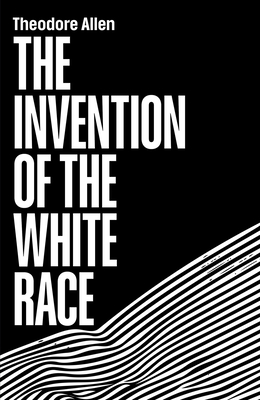 The Invention of the White Race: The Origin of Racial Oppression
The Invention of the White Race: The Origin of Racial Oppression
by Theodore W. AllenVerso Books (Oct 05, 2021)
Read Detailed Book Description
When the first Africans arrived in Virginia in 1619, there were no "white" people there; nor, according to colonial records, would there be for another sixty years. Historical debate about the origin of racial slavery has focused on the status of the Negro in seventeenth-century Virginia and Maryland. However, as Theodore W. Allen argues in this magisterial work, what needs to be studied is the transformation of English, Scottish, Irish and other European colonists from their various statuses as servants, tenants, planters or merchants into a single new all-inclusive status: that of whites. This is the key to the paradox of American history, of a democracy resting on race assumptions.
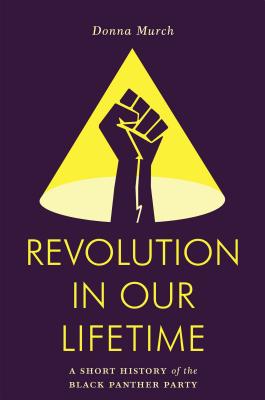 Revolution in Our Lifetime: A Short History of the Black Panther Party
Revolution in Our Lifetime: A Short History of the Black Panther Party
by Donna MurchVerso Books (Sep 01, 2020)
Read Detailed Book Description
Donna Murch is an Associate Professor of history at Rutgers University in New Jersey. She is the author of Living for the City: Migration, Education, and the Rise of the Black Panther party in Oakland, California, which won the Phillis Wheatley Prize. Her research and analysis is featured in the award-winning documentary on the Black Panthers, Vanguard of the Revolution.
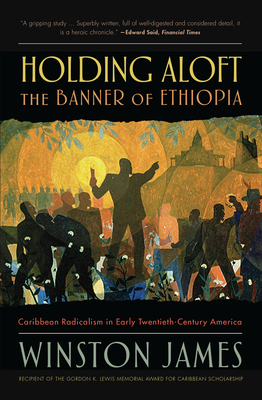 Holding Aloft the Banner of Ethiopia: Caribbean Radicalism in Early-Twentieth Century America
Holding Aloft the Banner of Ethiopia: Caribbean Radicalism in Early-Twentieth Century America
by Winston JamesVerso Books (Feb 18, 2020)
Read Detailed Book Description
Recipient of the Gordon K. Lewis Memorial Award for Caribbean Scholarship, Marcus Garvey, Amy Jacques Garvey, Claude McKay, Claudia Jones, C.L.R. James, Stokely Carmichael—the roster of immigrants from the Caribbean who have had a profound impact on the development of radical politics in the United States is a long one. In this magisterial work, Winston James focuses on the twentieth century’s first wave of inspirational writers and activists from the Caribbean and their contribution to political dissidence in America.
Examining the way in which the characteristics of the societies they left shaped their perceptions of the land to which they traveled, Winston James draws sharp differences between Hispanic, Anglophone, and other non-Hispanic arrivals. He explores the interconnections between the Cuban independence struggle, Puerto Rican nationalism, Afro-American feminism, and black communism in the first turbulent decades of the twentieth century. He also provides fascinating insights into the peculiarities of Puerto Rican radicalism’s impact in New York City and recounts the remarkable story of Afro-Cuban radicalism in Florida. Virgin Islander Hubert Harrison, whom A. Philip Randolph dubbed "the father of Harlem radicalism," is rescued from the historical shadows by James’s analysis of his pioneering contribution to Afro-America’s radical tradition. In addition to a subtle re-examination of Garvey’s Universal Negro Movement Association—including the exertions and contributions of its female members—James provides the most detailed exploration so far undertaken of Cyril Briggs and his little-known but important African Blood Brotherhood.
This diligently researched, wide-ranging, and sophisticated book will be welcomed by all those interested in the Caribbean and its émigrés, the Afro-American current within America’s radical tradition, and the history, politics, and culture of the African diaspora.
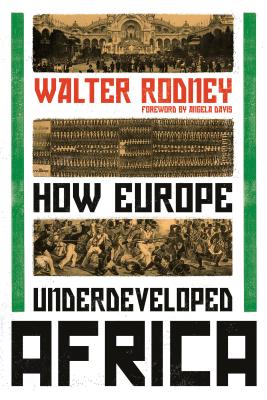 How Europe Underdeveloped Africa
How Europe Underdeveloped Africa
by Walter RodneyVerso Books (Nov 27, 2018)
Read Detailed Book Description
The classic work of political, economic, and historical analysis, powerfully introduced by Angela Davis
In his short life, the Guyanese intellectual Walter Rodney emerged as one of the leading thinkers and activists of the anticolonial revolution, leading movements in North America, South America, the African continent, and the Caribbean. In each locale, Rodney found himself a lightning rod for working class Black Power. His deportation catalyzed 20th century Jamaica’s most significant rebellion, the 1968 Rodney riots, and his scholarship trained a generation how to think politics at an international scale. In 1980, shortly after founding of the Working People’s Alliance in Guyana, the 38-year-old Rodney would be assassinated. In his magnum opus, How Europe Underdeveloped Africa, Rodney incisively argues that grasping "the great divergence" between the west and the rest can only be explained as the exploitation of the latter by the former. This meticulously researched analysis of the abiding repercussions of European colonialism on the continent of Africa has not only informed decades of scholarship and activism, it remains an indispensable study for grasping global inequality today.“Before a bomb ended his life in the summer of 1980, Walter Rodney had created a powerful legacy. This pivotal work, How Europe Underdeveloped Africa, had already brought a new perspective to the question of underdevelopment in Africa. His Marxist analysis went far beyond the heretofore accepted approach in the study of Third World underdevelopment. How Europe Underdeveloped Africa is an excellent introductory study for the student who wishes to better understand the dynamics of Africa s contemporary relations with the West.” —Black Classic Press (earlier publisher of this book)
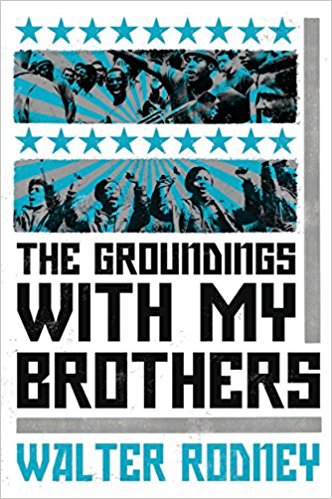 The Groundings With My Brothers
The Groundings With My Brothers
by Walter RodneyVerso Books (Oct 02, 2018)
Read Detailed Book Description
"I have sat on a little oil drum, rusty and in the midst of garbage, and some black brothers and I have grounded together." - Walter Rodney
In his short life, the Guyanese intellectual Walter Rodney emerged as one of the leading thinkers and activists of the anticolonial revolution, leading movements in North America, South America, the African continent, and the Caribbean. In each locale, Rodney found himself a lightning rod for working class Black Power. His deportation catalyzed 20th century Jamaica’s most significant rebellion, the 1968 Rodney riots, and his scholarship trained a generation how to think politics at an international scale. In 1980, shortly after founding of the Working People’s Alliance in Guyana, the 38-year-old Rodney would be assassinated.
In this classic work published in the heady days of international black power, Groundings with My Brothers details the global circulation of emancipatory ideas, but also offers first-hand reports of Rodney’s mass movement organizing. Introduced and contextualized by leading Caribbean scholar-activists, this updated edition brings Rodney’s legacy to a new generation of radicals.
 Algiers, Third World Capital: Freedom Fighters, Revolutionaries, Black Panthers
Algiers, Third World Capital: Freedom Fighters, Revolutionaries, Black Panthers
by Elaine Mokhtefi
Verso Books (Aug 07, 2018)
Read Detailed Book Description
A fascinating portrait of life with the Black Panthers in Algiers: a story of liberation and radical politics
Following the Algerian war for independence and the defeat of France in 1962, Algiers became the liberation capital of the Third World. Elaine Mokhtefi, a young American woman immersed in the struggle and working with leaders of the Algerian Revolution, found a home here. A journalist and translator, she lived among guerrillas, revolutionaries, exiles, and visionaries, witnessing historical political formations and present at the filming of The Battle of Algiers.
Mokhtefi crossed paths with some of the era’s brightest stars: Frantz Fanon, Stokely Carmichael, Timothy Leary, Ahmed Ben Bella, Jomo Kenyatta, and Eldridge Cleaver. She was instrumental in the establishment of the International Section of the Black Panther Party in Algiers and close at hand as the group became involved in intrigue, murder, and international hijackings. She traveled with the Panthers and organized Cleaver’s clandestine departure for France. Algiers, Third World Capital is an unforgettable story of an era of passion and promise.
 Invisibility Blues: From Pop to Theory (Radical Thinkers)
Invisibility Blues: From Pop to Theory (Radical Thinkers)
by Michele WallaceVerso Books (Nov 08, 2016)
Read Detailed Book Description
First published in 1990, Michele Wallace’s Invisibility Blues is widely regarded as a landmark in the history of black feminism.
Wallace’s considerations of the black experience in America include recollections of her early life in Harlem; a look at the continued underrepresentation of black voices in politics, media, and culture; and the legacy of such figures as Zora Neale Hurston, Toni Cade Bambara, Toni Morrison,and Alice Walker. Wallace addresses the tensions between race, gender, and society, bringing them into the open with a singular mix of literary virtuosity and scholarly rigor. Invisibility Blues challenges and informs with the plain-spoken truth that has made it an acknowledged classic.
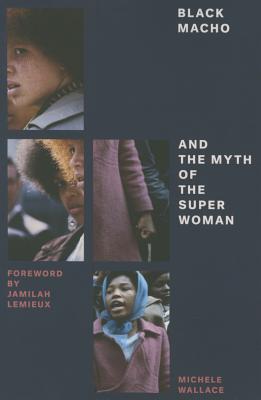 Black Macho and the Myth of the Superwoman (Feminist Classics)
Black Macho and the Myth of the Superwoman (Feminist Classics)
by Michele WallaceVerso Books (Jun 09, 2015)
Read Detailed Book Description
Originally published in 1978, Black Macho and the Myth of the Superwoman caused a storm of controversy. Michele Wallace blasted the masculine biases of the black politics that emerged from the sixties. She described how women remained marginalized by the patriarchal culture of Black Power, demonstrating the ways in which a genuine female subjectivity was blocked by the traditional myths of black womanhood. With a foreword that examines the debate the book has sparked between intellectuals and political leaders, as well as what has—and, crucially, has not—changed over the last four decades, Black Macho and the Myth of the Superwoman continues to be deeply relevant to current feminist debates and black theory today.
 The Invention of the White Race (Second Edition, Two-Books)
The Invention of the White Race (Second Edition, Two-Books)
by Theodore W. AllenVerso Books (Nov 20, 2012)
Read Detailed Book Description
The Invention of the White Race is a groundbreaking analysis of the birth of racism in America. When the first Africans arrived in Virginia in 1619, there were no "white" people, nor, according to colonial records, would there be for another sixty years. In his seminal two-volume work, Theodore W. Allen details the creation of the "white race" by the ruling class as a method of social control in response to labor unrest precipitated by Bacon’s Rebellion. By distinguishing European Americans from African Americans within the laboring class, white privileges enforced the myth of the white race through the years and has been central to maintaining ruling-class domination over the entire working class.
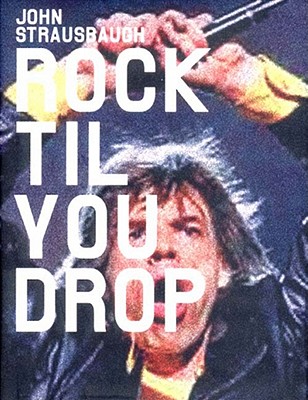 Rock ’Til You Drop: The Decline from Rebellion to Nostalgia
Rock ’Til You Drop: The Decline from Rebellion to Nostalgia
by John StrausbaughVerso Books (Aug 09, 2001)
Read Detailed Book Description
In the 1960s and early 70s rock and rebellion went arm in arm. This was the generation that angrily refused to grow up, to settle down. The Who captured the zeitgeist with precision: ‘I hope I die before I get old.’
Yet, thirty years later, many of the icons of rock and roll’s angry childhood are not only still alive but continue to haul themselves up on stage, limping through old standards with performances that have lost all edge and meaning. As the grizzled old men of Crosby, Stills, Nash & Young undertake yet another tour, Cher makes her umpteenth comeback, and Yes grind out their old standards to punters at gambling resorts, John Strausbaugh reflects acidly on the declining charm of colostomy rock.
Strausbaugh interleaves acute reflections by commentators such as Ellen Willis, and legendary figures such as John Sinclair (manager of the notorious MC5) and Tuli Kupferberg of the Fugs, with his own take on the business of rock and roll. Intemperate and savvy, he rails at the timidity of Rolling Stone‘s hipster capitalism, the sterility of the Rock and Roll Hall of Fame, and the appalling prospect of the Stones heading out on the road again after live appearances that were dubbed the ‘Steel Wheelchairs’ tour. He talks to the engaging Giorgio Gromelsky, manager of the Yardbirds, about the early days of rock and roll in London, and to Soul Coughing founder Mike Doughty about how a younger generation of musicians see the business today.
Impassioned and opnionated, Rock Til You Drop is a rousing indictment of a musical generation which started out with pretensions to be world changers and ended up merely as short-changers of their original ideals. The publishers disclaim responsibility for any further medical deterioration of aging rock and rollers who read this book.
 Black Macho and the Myth of the Superwoman
Black Macho and the Myth of the Superwoman
by Michele WallaceVerso Books (Apr 17, 1999)
Read Detailed Book Description
Originally published in 1978, this book caused a storm of controversy as Michele Wallace blasted the masculinist bias of the black politics that emerged from the sixties. She described how women remained marginalized by the patriarchal culture of Black Power and the ways in which a genuine female subjectivity was blocked by the traditional myths of black womanhood. In 1990 the author added a new introduction examining the debate the book had sparked between intellectuals and political leaders; an extensive bibliography of contemporary black feminist studies was also added. Black Macho raised issues and arguments that framed the terms of current feminist and black theory and continues to be relevant today.
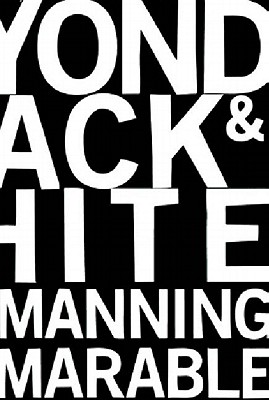 Beyond Black and White: Rethinking Race in American Politics and Society
Beyond Black and White: Rethinking Race in American Politics and Society
by Manning MarableVerso Books (Oct 17, 1996)
Read Detailed Book Description
A generation removed from the Civil Rights Movement and the Black Power explosion of the 1960s, the pursuit of racial equality and social justice for African-Americans seems more elusive than ever. The realities of contemporary black America capture the nature of the crisis: life expectancy for black males is now below retirement age; median black income is less than 60 per cent that of whites; over 600,000 African-Americans are incarcerated in the US penal system; 23 per cent of all black males between the ages of eighteen and 29 are either in jail, on probation or parole, or awaiting trial. At the same time, affirmative action programs and civil rights reforms are being challenged by white conservatism.
Confronted with a renascent right and the continuing burden of grotesque inequality, Manning Marable argues that the black struggle must move beyond previous strategies for social change. The politics of black nationalism, which advocates the building of separate black institutions, is an insufficient response. The politics of integration, characterized by traditional middle-class organizations like the NAACP and Urban League, seeks only representation without genuine power. Instead, a transformationist approach is required, one that can embrace the unique cultural identity of African-Americans while restructuring power and privilege in American society. Only a strategy of radical democracy can ultimately deconstruct race as a social force.
Beyond Black and White brilliantly dissects the politics of race and class in the US of the 1990s. Topics include: the Clarence Thomas-Anita Hill controversy; the factors behind the rise and fall of Jesse Jackson’s Rainbow Coalition: Benjamin Chavis and the conflicts within the NAAPC; and the national debate over affirmative action. Marable outlines the current debates in the black community between liberals, ‘Afrocentrists’, and the advocates of social transformation. He advances a political vision capable of drawing together minorities into a majority which can throw open the portals of power and govern in its own name.
